Ireland in November offers a unique charm. The weather is cool and often rainy. Temperatures range from 4°C to 11°C. Despite the rain, it’s a beautiful time to visit Ireland. Explore historic sites, enjoy cozy pubs, and attend vibrant festivals. The countryside is lush and green, with fewer tourists.
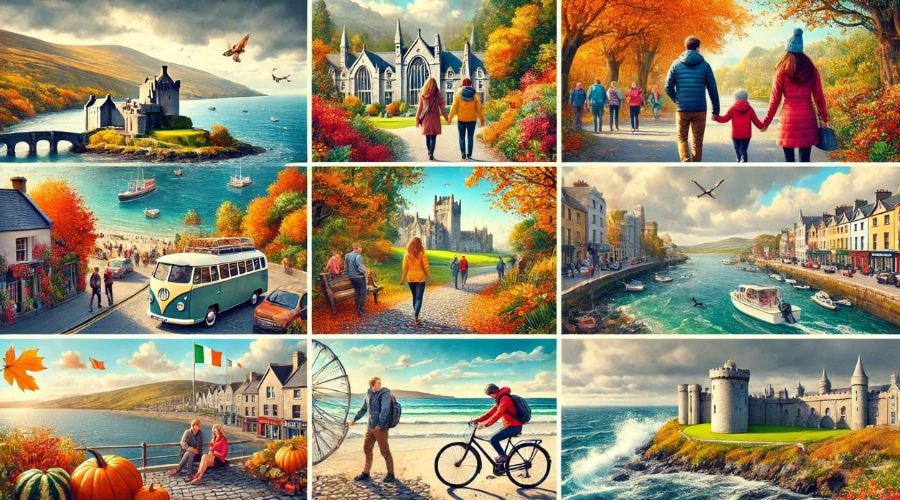
I visited Ireland last November. The Cliffs of Moher were breathtaking. Dublin's pub scene was lively and welcoming. The Cork Film Festival was a cultural highlight and a fantastic trip. Visit Ireland and experience its unique charm in November.
What Is the Weather Like in Ireland in November?
The weather in Ireland in November is typically characterized by its cool and wet conditions. Average daytime temperatures hover between 4°C to 11°C (39°F to 52°F), and nights can be particularly chilly. This month sees frequent rainfall, with parts of the country, including Northern Ireland and County Kerry, receiving more than 80mm of rain. November is among the wetter months in Ireland, with approximately 18 rainy days, above average temperature so visitors should be prepared for frequent showers.
As for daylight, November days are short as winter approaches. Sunrise tends to occur around 7:30 AM, with sunset by 4:30 PM, giving less daylight for outdoor activities. The overcast skies are common, with only rare sunny intervals.
Despite the damp weather, November is a great time to experience the indoor warmth of Ireland's cultural offerings. Whether you are visiting Dublin, exploring the Causeway Coast, or enjoying the festive Christmas markets, pubs, museums, and restaurants provide a cozy refuge from the brisk outdoors, offering a chance to enjoy traditional Irish music, cuisine, and hospitality. The cool, damp conditions also enhance the scenic beauty of the Emerald Isle, making it ideal for photography enthusiasts and nature lovers who don't mind a bit of rain. Places like West Cork are especially picturesque during this time, adding charm to your visit to Ireland.
Temperature Ranges
The weather in Ireland during November features cool to cold temperatures as the country transitions deeper into autumn and approaches winter. Average daily highs typically hover around 10°C (50°F), while nightly lows often drop to about 4°C (39°F). Coastal areas tend to experience slightly milder temperatures due to the moderating effect of the Atlantic Ocean.
Temperature fluctuations are minimal throughout the month, although the early weeks of November can sometimes see slightly warmer temperatures. Frost is common, particularly in inland and rural areas, as night-time temperatures frequently fall below freezing. Despite the cold, extended periods of freezing weather are rare in November, making it a brisk but generally not harsh month weather-wise.
This period also marks a decrease in daylight hours, with the sun setting earlier in the evening, which further accentuates the cooler temperatures. Visitors should prepare for a range of conditions and pack accordingly, with warm clothing essential for navigating Ireland's November climate.
Rainfall
In November, Ireland experiences significant rainfall, with averages ranging from 60mm to 120mm across the country. This month is characterized by frequent rainy days, typically seeing precipitation on approximately 20 out of 30 days. The rainfall is more pronounced in western regions due to Atlantic weather systems, which bring heavier and more persistent rain compared to the eastern parts. Travelers should prepare for wet conditions and plan indoor activities accordingly, as the rain can be both sudden and prolonged. Despite the damp weather, the landscape's lushness is enhanced, offering vivid, scenic views ideal for photography, especially on the occasional clear day.
Daylight Hours
In Ireland during November, daylight hours are noticeably shorter as winter approaches. The sun typically rises around 7:30 AM and sets near 4:30 PM, providing approximately 9 hours of daylight. This decrease in daylight from the longer days of summer is due to Ireland's northern geographic location. The shorter days can significantly impact daily activities and sightseeing schedules, encouraging visitors to plan accordingly to maximize the available daylight.
Best Things To Do in Ireland in November
November in Ireland brings cooler temperatures, mild weather, and the charm of late autumn, making it a perfect time to explore indoor cultural experiences and enjoy the serene outdoor landscapes. From vibrant music sessions in cozy pubs to tranquil walks in lush national parks, Ireland offers a blend of activities that cater to both cultural enthusiasts and nature lovers. Here are some of the best things to do in Ireland in November:
Visit Dublin’s Museums
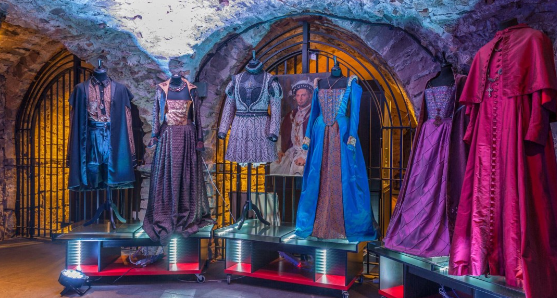
Dublin's museums offer a warm retreat from the November chill. The National Museum of Ireland and the Irish Museum of Modern Art host special exhibitions during this month. I always find the early winter exhibits particularly inspiring, perfect for sparking creativity on a grey day.
Explore the Wild Atlantic Way
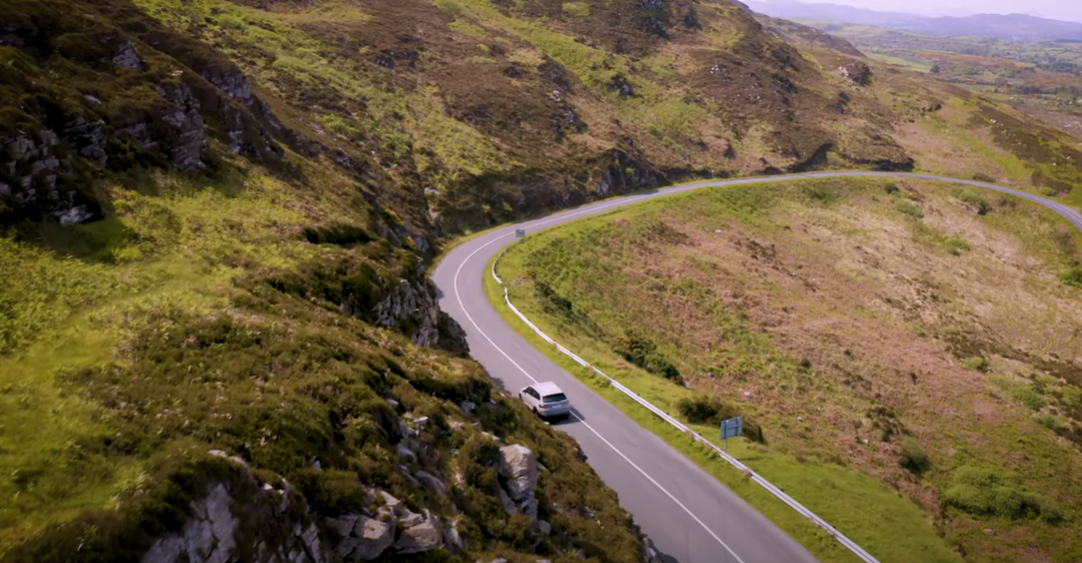
Driving the Wild Atlantic Way is breathtaking with fewer tourists in November. The rugged coastline, especially at sunrise, provides dramatic views that are unforgettable. Last November, I captured some of my favorite photographs along this route.
Enjoy Traditional Irish Music Sessions
Traditional music sessions in pub corners are a nightly delight. Towns like Doolin and Galway are famous for their music scenes. Pulling up a chair at O'Connor's Pub in Galway introduced me to musicians whose tunes are as captivating as the local tales.
Experience the Cork Jazz Festival
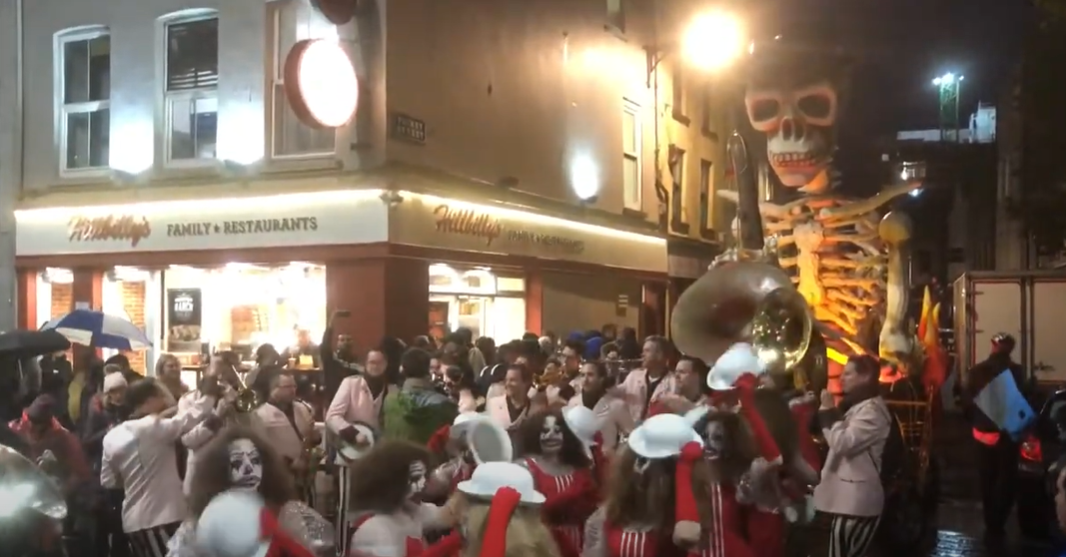
The Cork Jazz Festival takes place annually in late October and often extends into early November. The city comes alive with music from international and local jazz artists. Experiencing this festival last year reminded me of the vibrancy of Ireland’s music culture.
Hike in Killarney National Park
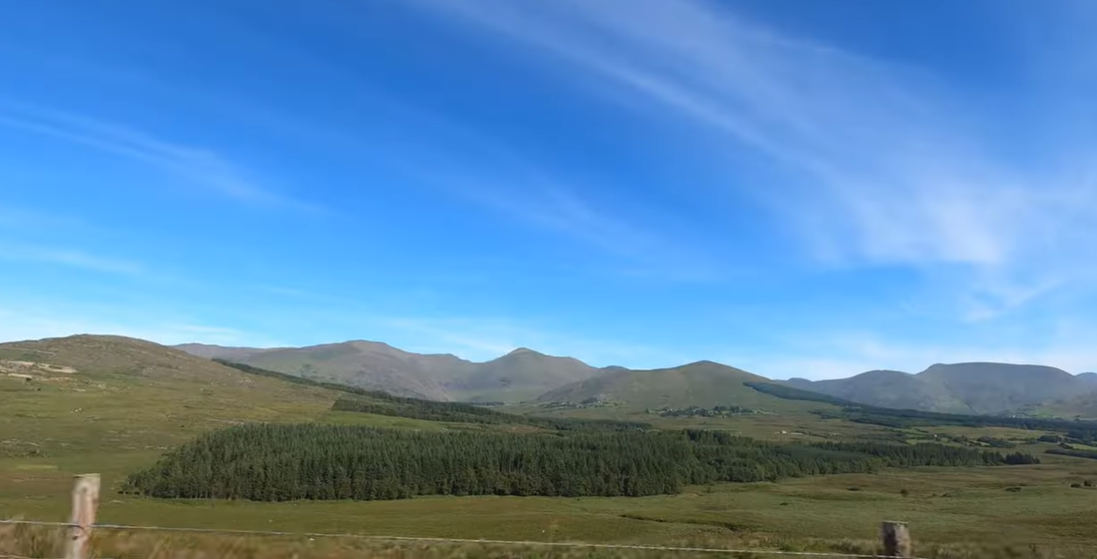
Killarney National Park offers serene landscapes that are especially lush in November. The crisp air makes hiking here invigorating. Walking through the park last fall, I was enveloped by the peaceful solitude and natural beauty of the area.
Witness the Galway Christmas Market
Starting in mid-November, the Galway Christmas Market lights up the city with festive spirit. The market features crafts, foods, and a Ferris wheel offering panoramic views of Galway. Enjoying a hot chocolate there last year felt like stepping into a holiday card.
Pros and Cons of Visiting Ireland in November
Visiting Ireland in November offers a unique experience distinct from the bustling tourist seasons. During this time, the island reveals a quieter, more reflective side of its character, allowing visitors to immerse themselves deeply in local culture and landscapes.
Pros:
-
Lower Travel Costs: Airfares and accommodation rates drop significantly, making it a budget-friendly option.
-
Fewer Tourists: Major attractions are less crowded, providing a more relaxed and enjoyable experience.
-
Cultural Events: November hosts several cultural events and festivals, including the Cork Jazz Festival and the Galway Science and Technology Festival.
Cons:
-
Unpredictable Weather: Ireland experiences colder temperatures and increased rainfall in November, which can disrupt travel plans.
-
Shorter Days: Daylight hours are reduced, with the sun setting early in the afternoon, limiting time for outdoor activities.
-
Some Closures: Fewer tourists can mean reduced hours or closures of some tourist sites and seasonal activities.
In summary, while November brings challenges like colder weather and shorter days, it also offers a great trip with the tranquility of off-peak travel and the warmth of Irish cultural festivities. This makes it an appealing time for those seeking a more intimate and cost-effective way to explore Ireland.
What Festivals Take Place in November in Ireland?
Several festivals light up Ireland in November, notably the Cork Film Festival and the Wexford Opera Festival. The Cork Film Festival showcases a diverse array of international and Irish films, attracting cinephiles from across the globe. Concurrently, the Wexford Opera Festival offers world-class performances, making it a pivotal event in Ireland's cultural calendar. Both festivals bring unique experiences, blending traditional Irish charm with artistic innovation.
Cork Film Festival
The Cork Film Festival, a major cultural event, lights up November in Ireland. As one of the oldest film festivals in Europe, it showcases an eclectic mix of international and Irish films. The festival takes place in the vibrant city of Cork, offering visitors a unique blend of cinematic exploration and local charm.
Personally, attending the Cork Film Festival was a memorable experience. The crisp November air mixed with the warm buzz of moviegoers created a welcoming atmosphere. One film, in particular, resonated with me deeply, highlighting the power of storytelling in connecting diverse cultures. This festival is not just an event; it's a celebration of art, creativity, and community.
Wexford Opera Festival
The Wexford Opera Festival is a highlight of Ireland's cultural calendar in November. This prestigious event transforms the quaint town of Wexford into an opera hub, attracting enthusiasts from around the globe. Performances showcase a mix of classic operas and forgotten works, breathing new life into rarely heard compositions.
Attending the festival last year, I was struck by the passion and precision of the performances. The historic Wexford Opera House, with its intimate setting, provided the perfect backdrop for the powerful vocals and intricate staging. It was an enriching experience that connected me deeply with the world of opera.
What Should You Know Before Travelling to Ireland in November?
Traveling to Ireland in November requires preparation for chilly and damp weather, as temperatures average between 5°C and 10°C with frequent rainfall. Pack warm, waterproof clothing to stay comfortable while exploring. This month offers the advantage of fewer tourists, making it a perfect time for visiting popular sites without the crowds.
Accommodation rates are generally lower, providing excellent travel deals. Consider booking cozy B&Bs or historic hotels for a more authentic experience. Transportation options like buses and trains remain reliable, but always check schedules as they might operate less frequently than in peak seasons.
From my own travels, I fondly see autumn foliage and remember walking through the quiet streets of Dublin, the city's lights reflecting on wet cobblestones, an almost magical sight. Visiting cozy pubs, where the warmth and live music created an inviting atmosphere, remains a highlight of my November trips.
Crowds and Tourism
When visiting Ireland in November, you'll find fewer crowds, especially at popular tourist spots like the Cliffs of Moher and Dublin's historical sites. The cooler, often damp weather tends to deter the usual tourist influx, providing a more serene and personal experience. During my last trip in November, I enjoyed quiet mornings walking through the almost-empty streets of Cork, feeling as if the city belonged just to me. It's a perfect time for those who prefer avoiding the hustle and prefer a more reflective visit. With fewer tourists, local events and pubs offer authentic Irish cultural experiences; you might find yourself pulling up a stool next to a local, ready to share stories over a pint of Guinness.
Accommodation and Travel Deals
Before traveling to Ireland in November, you should be aware of the accommodation and travel deals available during this off-peak season. Hotels and guesthouses often offer reduced rates, making it an economical time to visit. Additionally, many airlines provide lower fares to Dublin, Shannon, and other major cities, allowing for budget-friendly travel.
When I visited Ireland in November last year, I secured a charming bed and breakfast in Galway at nearly half the summer rate. The cool, crisp weather was perfect for enjoying the rugged coastal scenery without the crowds. Another tip is to look for package deals that include car rental, which can be significantly cheaper in November. This makes exploring the Irish countryside more accessible and allows you to discover hidden gems at your own pace.
Ensure to book your accommodations and flights early to take advantage of these deals, as they tend to fill up quickly once available.
Transportation
When considering transportation in Ireland in November, it's essential to plan for shorter daylight hours. Buses and trains operate reliably, but schedules might be less frequent, especially in rural areas. Renting a car provides flexibility to explore, but remember that it gets dark early, around 4:30 PM, which can impact your travel times.
In my experience, using public transportation in Dublin and other cities is efficient. The cold, damp weather makes a warm bus quite welcoming after a day of sightseeing. I always find that carrying an updated transit app on my phone helps in real-time navigation, whether catching the last evening bus or finding the quickest route back to my accommodation.
If you're driving, roads can be slick; winter tires and cautious driving are advisable. The beauty of the Irish landscape, even under overcast November skies, makes any extra travel effort worthwhile.
What to Pack for Ireland in November
Packing for Ireland in November requires careful consideration of the variable weather conditions you’ll encounter. With frequent rainfall and chilly temperatures, it’s crucial to be prepared for anything. Layering your clothing will help you stay comfortable throughout the various day trips, as you may experience brisk winds, sudden showers, and cool evenings. The weather in Ireland during November can be unpredictable, so it’s best to pack versatile items that can adapt to changing conditions.
-
Waterproof Jacket: Choose a high-quality, breathable waterproof jacket to withstand the damp Irish climate. This will protect you from rain while allowing moisture to escape, keeping you dry and comfortable.
-
Warm Layers: Pack a variety of warm layers such as thermal tops, fleece jackets, or wool sweaters. These will provide essential insulation, and you can add or remove layers as needed throughout the day.
-
Sturdy Footwear: Waterproof boots are essential for navigating Ireland’s wet and often slippery paths. Opt for a pair with good grip and support to ensure your feet stay dry and comfortable during long walks.
-
Warm Accessories: Hats, gloves, and scarves are crucial for protecting against the cold wind. Choose items made from insulating materials like wool to keep warm while exploring outdoor attractions.
-
Umbrella: A compact, portable umbrella will be handy for sudden rain showers. Look for a sturdy model that can withstand gusty winds without turning inside out.
-
Travel Backpack: A waterproof backpack is ideal for keeping your belongings dry and secure. Make sure it has enough space for your essentials and any extra layers you might need.
-
Moisturizer and Lip Balm: The cold wind can be harsh on your skin, so pack a good moisturizer and lip balm to protect against dryness and chapping.
With these items in your suitcase, you’ll be well-prepared to enjoy all that Ireland has to offer, from its breathtaking landscapes to its warm, inviting pubs. The key is to stay dry and warm, allowing you to fully embrace the beautiful Irish scenery and cultural experiences despite the November chill. Whether you’re exploring ancient castles, hiking along scenic cliffs, or enjoying a cozy evening by the fire, having the right gear will ensure your trip is comfortable and enjoyable. So, pack smart, layer up, and get ready to make the most of your Irish adventure.
FAQs On Ireland in November
1. What is the weather like in Ireland in November?
The weather in Ireland in November is typically cool and damp. Temperatures range from 4°C to 11°C. Rain is frequent, so pack a waterproof jacket.
2. What are the best things to do in Ireland in November?
In November, explore the historic sites like Blarney Castle and the Cliffs of Moher. Enjoy the vibrant pub culture in Dublin. Attend festivals such as the Cork Film Festival.
3. Are there any special events in Ireland in November?
Yes, there are special events in November. The Cork Film Festival and Dublin Book Festival are major highlights. These events showcase local and international talent.
4. Is it a good time to visit the countryside in Ireland in November?
November is a great time to visit the Irish countryside. The landscapes are lush and green. The weather may be wet, but the scenery is stunning and less crowded.
5. What should I pack for a trip to Ireland in November?
For a trip to Ireland in November, pack warm clothing. Include layers, a waterproof jacket, and sturdy walking shoes. Don’t forget an umbrella and a hat.
